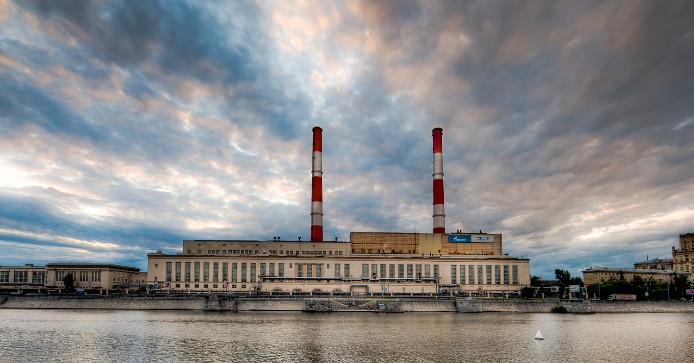
Russia and the Geopolitics of Natural Gas
Russian natural gas-giant Gazprom recently cut off supplies to Ukraine, demanding up-front payments and creating ripple effects across Europe. However, by isolating Ukraine, Russia may have isolated itself from other European countries. The geopolitical consequences of Putin’s actions are complex as they involve the economic stability of Europe and multiple competing interests that are likely to affect energy policy and international affairs around the world.
About 40% of Ukraine’s energy consumption is fueled by natural gas; 63% of that natural gas was supplied by Russia in 2012. Ukraine is also a heavy transit country of Russian natural gas for many European Union (EU) countries – 20% of the natural gas consumed by the EU flows through the country.
A recent event hosted by the American Enterprise Institute (AEI) provided various perspectives on impacts that Russian energy policy will have on surrounding European countries. The panel provided listeners with a range of information regarding Russian energy giant Gazprom, the troubles Europe will face based on regional variations in energy resource options, and what role the U.S. might play in easing European dependence on Russian oil.
Anders Aslund of the Peterson Institute for International Economics considers Gazprom one of the worst commercial gas companies. He cited Russia’s neglect of the U.S. shale revolution, increases in global liquefied natural gas production, the United Nations’ (UN) competition policy, and the leveling out of European energy consumption against Russia’s energy interests worldwide. As tightly controlled as Gazprom is, the amount of money produced and pipelines indiscriminately built are undermining Russia’s long-term energy and economic interests. Aslund called Gazprom the largest “organized crime syndicate in the world.”
Some of the panelists believe that Putin has yet to fully consider his next steps. They believe that decisions made regarding Gazprom pipelines and pricing are arbitrary, and Putin is attempting to serve the interests of cabinet members and paying lip service to Russian citizens without considering the role of international energy markets.
Europe as a whole faces significant challenges and a variety of choices into the future. Gary Schmitt of AEI shed light on other European countries and their energy options. Poland was unable to get their shale-gas markets off the ground, Germany has banned fracking, France has shale potential but focuses heavily on their nuclear power capabilities, and Ukraine lacks the financial resources and stability to pursue shale gas, although Shell has expressed interest in helping them in this venture.
The larger issue that European countries face is variable perceptions of fossil fuel usage. While the security of the region may depend on Ukraine having a quick and affordable supply of energy to keep them stable, Western European countries and the U.S. may be slow in providing help based on their long-term energy and climate change concerns.
The U.S., while not energy independent, has a market ripe with alternative fuel investors, and there has been steady movement towards renewables in recent years due to a growing consensus on climate change. This is also true of Western European countries, such as France and the U.K. Unfortunately, Ukraine does not currently have the luxury of time or excess funds to pursue renewables on their own; Russian gas thus remains an essential, and its removal poses significant national security risks.
Ben Zycher, an energy and environmental policy scholar at AEI, highlighted the options that the U.S. has in helping to ease European dependence on Russian oil. There is an honest argument behind the idea that exporting oil, coal, and natural gas from the U.S. would be beneficial for the region, and Zycher believes that emissions from doing so would have only negligible effects on total greenhouse gas emissions and global climate chance. The greatest roadblock some experts see to U.S. involvement in Europe’s energy market stems from the Obama administration’s aversion to fossil fuel usage. They see hope only in the gradual “liberalization” of Obama’s energy policies.
Russian aggression towards Ukraine and their use of natural gas as a policy tool is dangerous for Ukraine, the surrounding region, and the world. International response to Putin’s actions and Ukraine’s gas troubles will continue to shape the global geopolitics of energy.
Photo: Greg Westfall






[…] Russia and the Geopolitics of Natural Gas […]